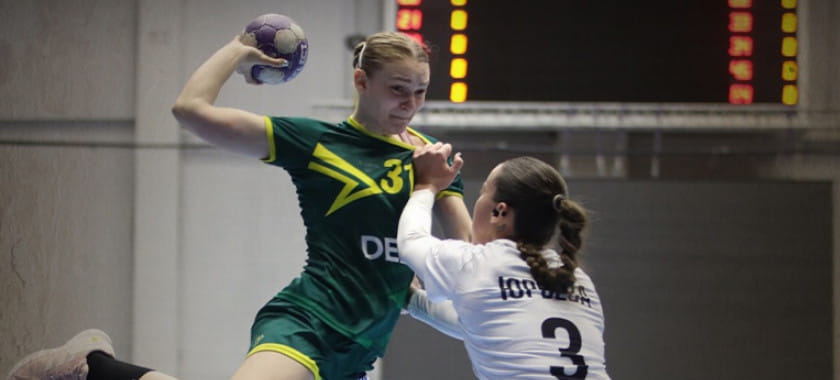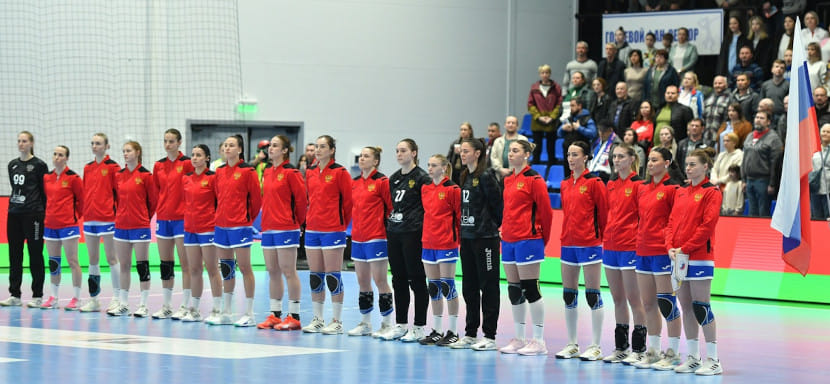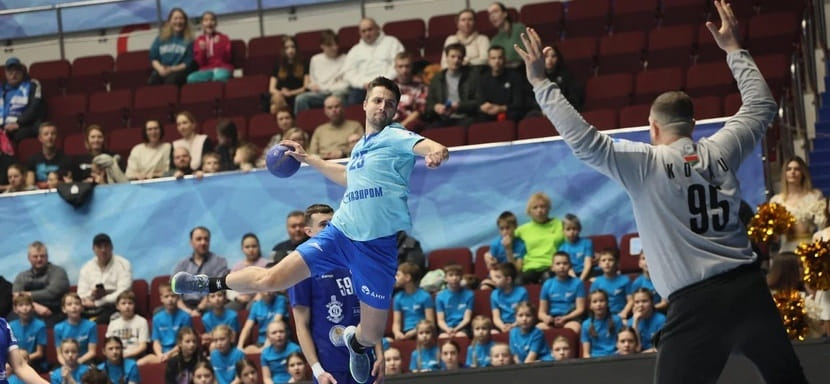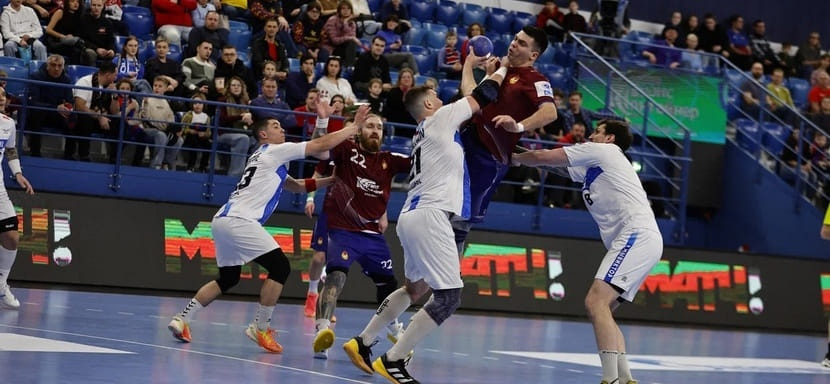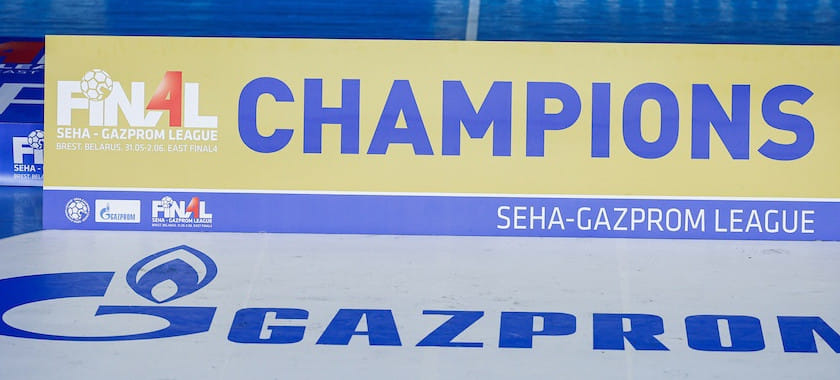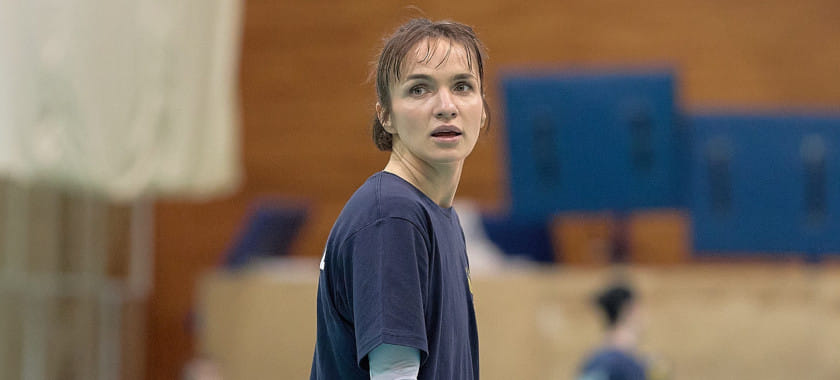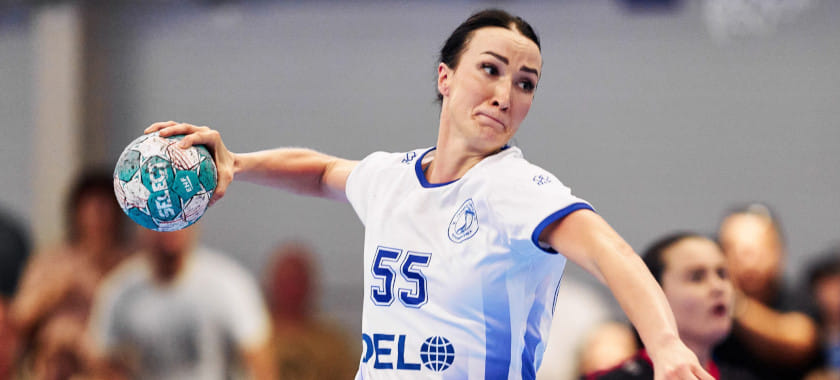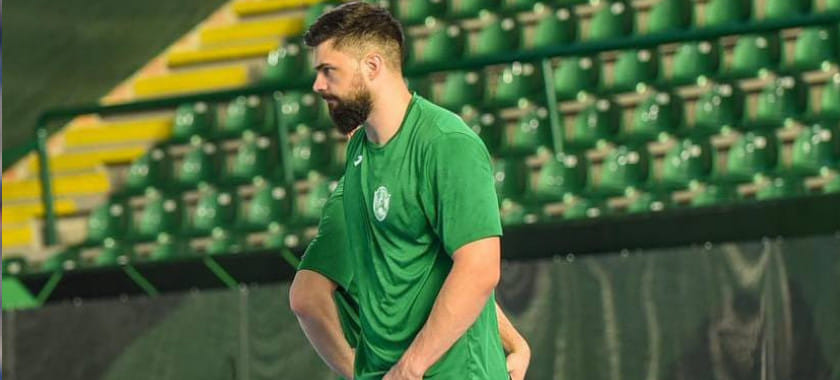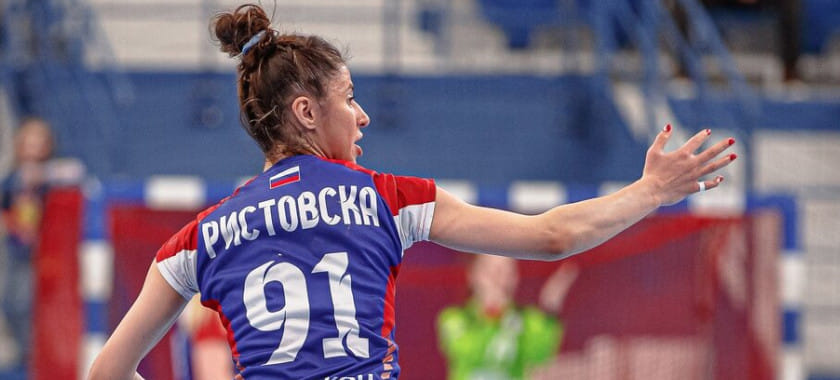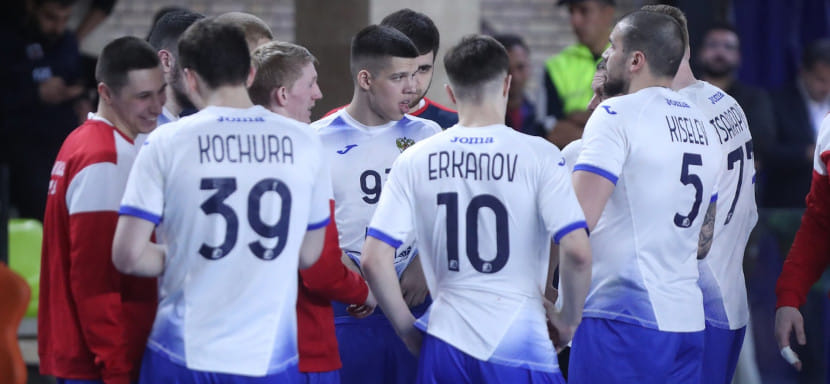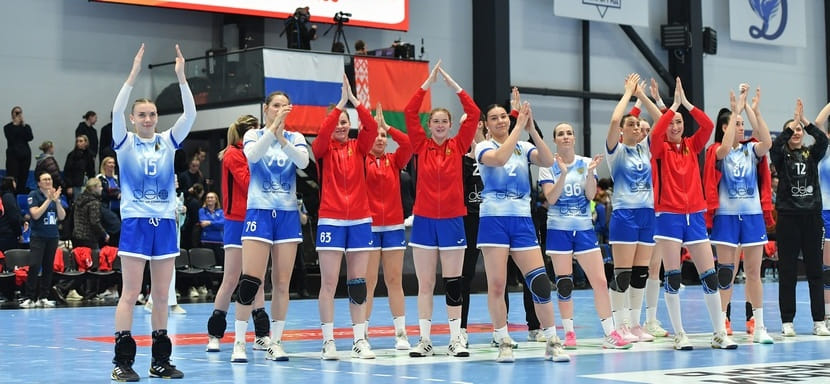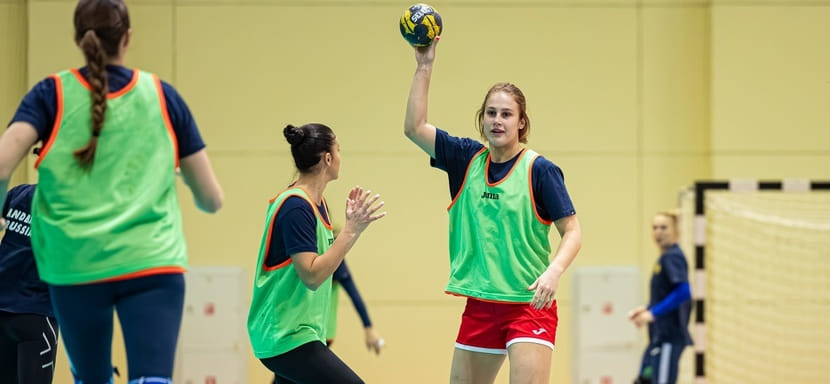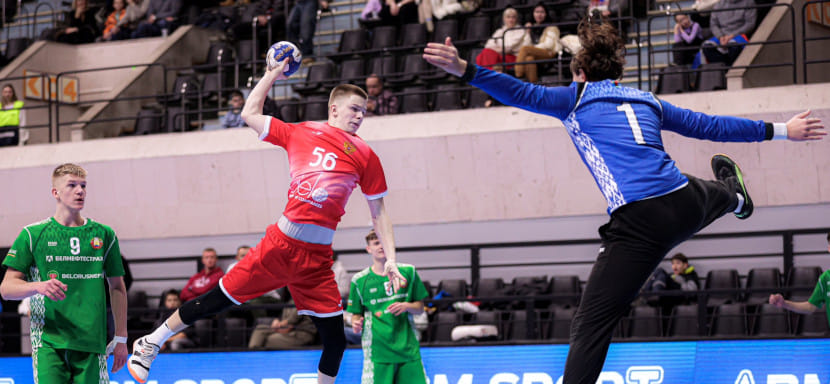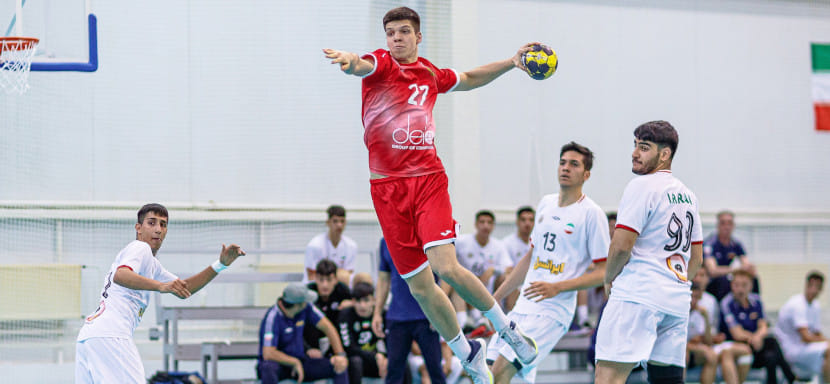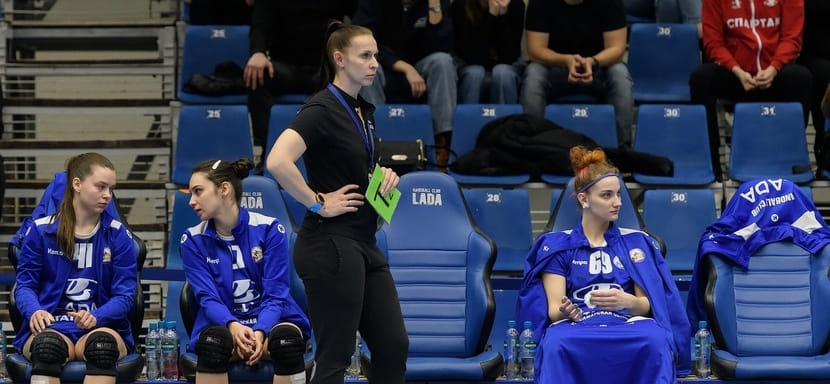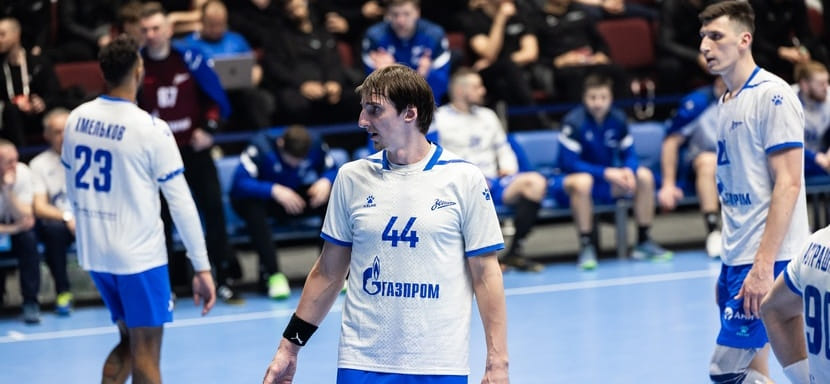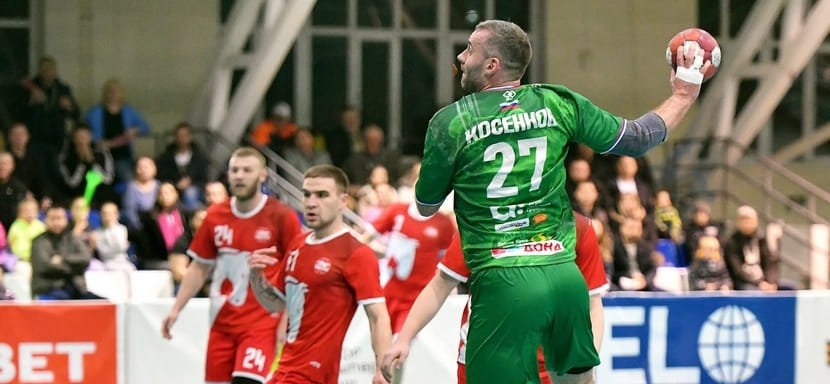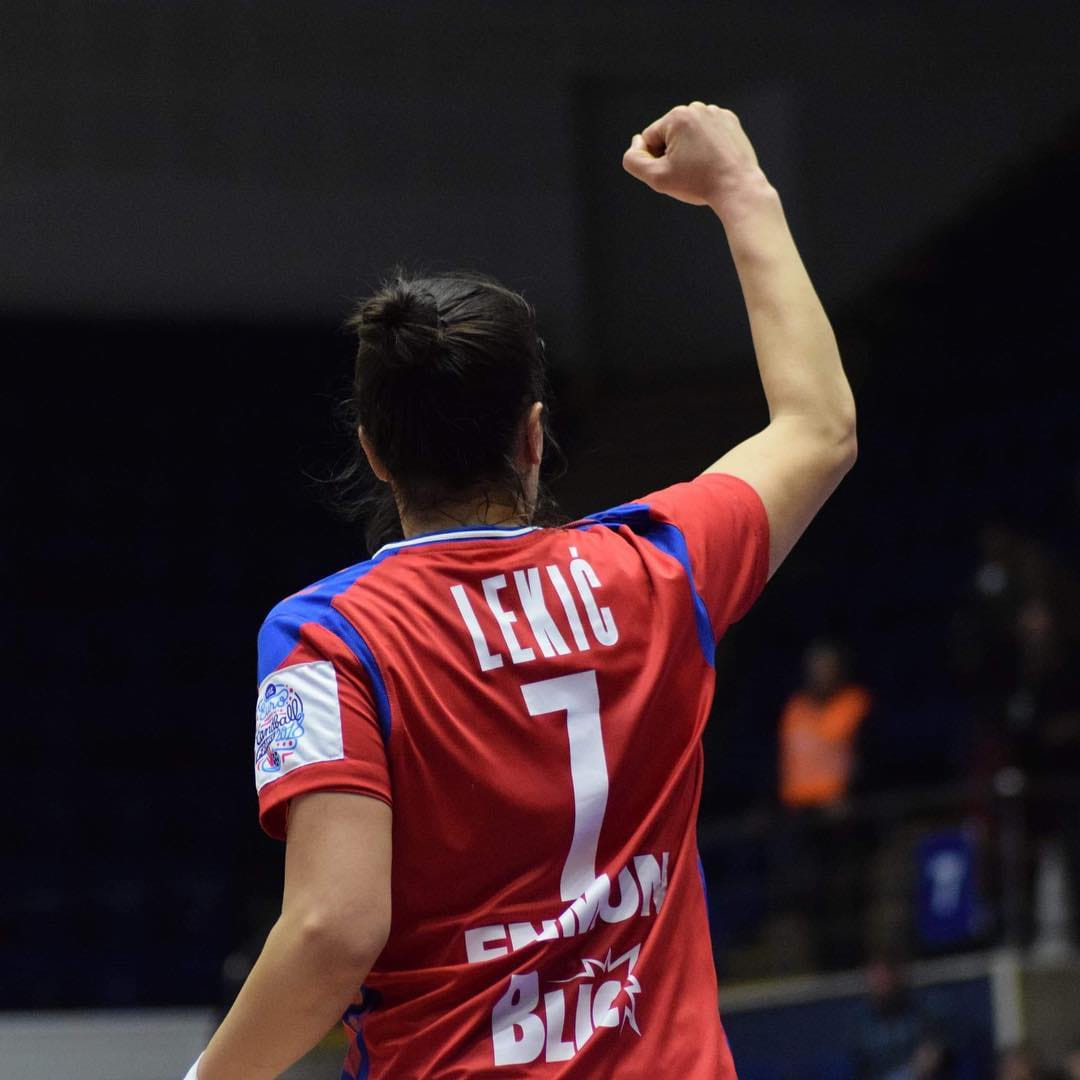
The leader of Ferencvarosi TC Andrea Lekic is one of the main stars in the women’s Champions League. She shared her attitude to Russian handball players in the first interview to Handballfast.
In the second part of the conversation Lekic tells how she "left" the national team of Serbia and how she returned. And she also recalls the most useful advice of her psychologist and explains why the program Respect Your Talent, the ambassador of which she remains, is great.
— News that you, Dragana Cvijic, Katarina Tomasevic and Katarina Krpez Slezak come back to the national team was met with enthusiasm in Serbia. How did it happen?
— By the way, a new coach came to the national team besides us (Norwegian Bent Dahl — Handballfast). Our goal is to get to the World Cup, because Serbia has shown the worst results in its history over the past four years.
New executives of the Serbian Handball Federation initiated a meeting seeking to strengthen the national team. Its sudden rejuvenation, promoted by the previous leadership, led to the fact that girls without sufficient experience, who were playing in the championship of Serbia, were thrown into the battle, and it was difficult to show good results in top-level tournaments.
Concerning the return itself, I never spoke in any interview that I was saying goodbye to the national team. It wasn’t my decision. I’m very happy to be in the team again, these are the greatest emotions in my career, regardless of the situation and results.
— How can you beat Slovenia in the play-offs of the 2025 World Cup? What is the ceiling of possibilities of the Serbian national team, strengthened with a quartet of the most experienced players?
— The Slovenian team has considerably raised the bar at the last European championship, I was pleasantly surprised, they played beautiful handball. They are teamed up almost to perfection — it won’t be easy. Slovenia is a favorite in this pair, judging by the achievements of the past years. But I believe we will manage to qualify for the World Cup, we returned for that. We will work hard during a week on the training session, at the same time we’ll get acquainted with the requirements of the new head coach. I’ve never played under his guidance before, he will likely instill the Norwegian style, Scandinavian school. We are all happy, I haven’t put on the national team shirt for four years, I am excited as a child.
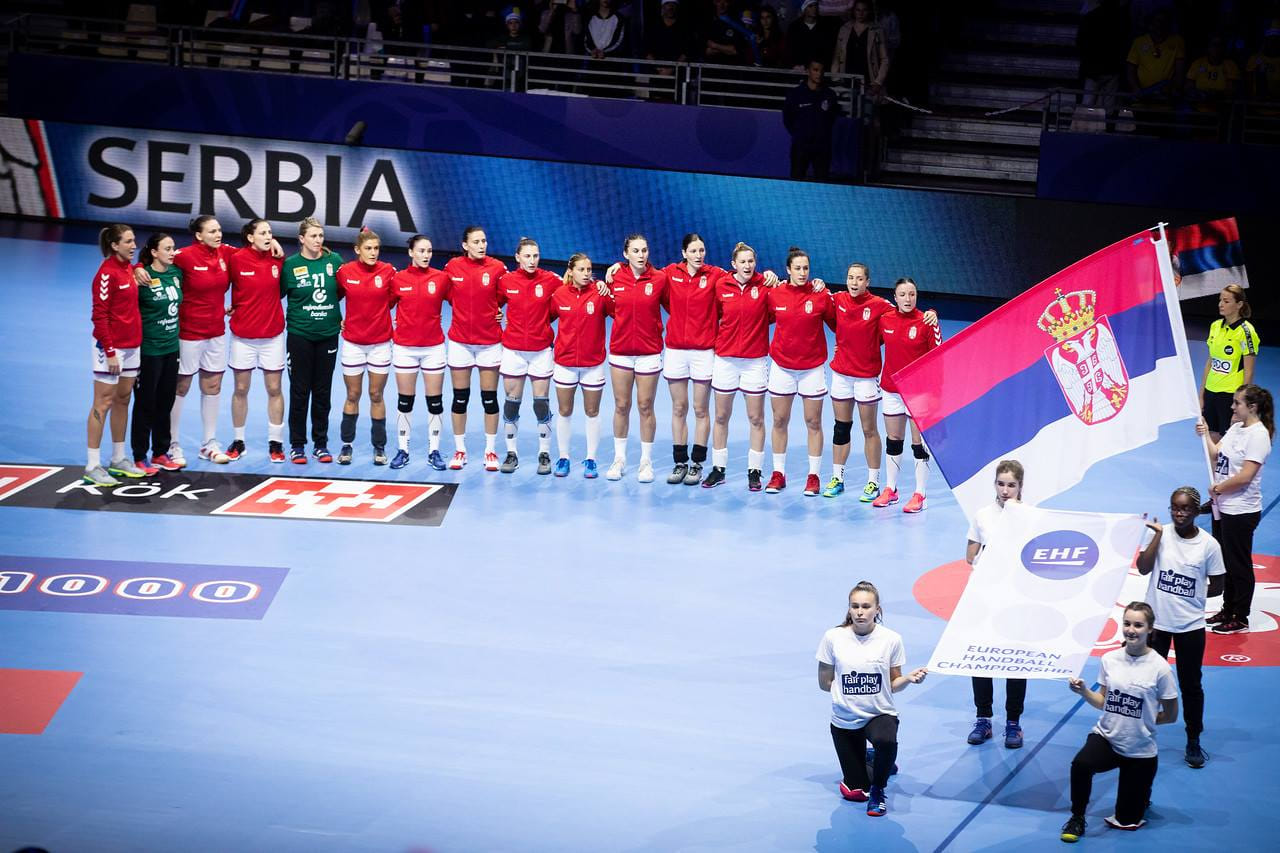
— Participation in the Olympic Games is your unfulfilled dream. Did a potential trip to Los Angeles become an additional motivation to return?
— We are going to move forward step by step. Indeed, the Olympics is the dream of every athlete. I’m grateful for the success and the medal I won with the national team, but I will always regret that the national team didn’t have more stable results at a high level. On the other hand, it is impossible without system changes in the work starting from the federation and clubs, it is very difficult to achieve stability without it.
I still don’t think about the Games in Los Angeles. I wish new handball start appeared in Serbia, whose game we would enjoy in the future. That would be the greatest joy for me, because Serbia needs handball and handball needs children. The national team should be seen and heard, people should talk about it that they come. I hope our return will inspire girls to go to handball.
— After the handball boom in Serbia, made by your generation at the beginning of the last decade, a recession occurred, followed by the loss of interest among children to handball. Girls go to volleyball, basketball and even to individual sports more often today… Is there any opportunity in the current conditions for players of the level of Lekic, Vujovic, Cvijic, Tomasevic to emerge, is there a system of their preparation?
— You have just named a keyword — system, it makes magic happen. Serbia needs one good strong club to build a system. Fabulous investments are not required, handball is not a high-budget sport, we need just a club, where children could grow as players, and the club could perform well in the European Cups. We are the only country in the Balkans which doesn’t have a club that represents it in a positive light and which could retain these girls, first of all, and ensure their steady progress. The youth national team should regularly supply three-four players to the senior team, it’s the foundation for the future. It takes patience, time and money. But everything will work out if we enter the project with a thought-out concept and a business plan.
We cannot afford to spread players to ten clubs and then expect from the head coach of the national team that he achieves great progress in 7 days of the training session. We don’t have that foundation that had been before anymore, when quality was born in massiveness. That is why a good marketing project is required, which can be supported, in particular financially, by the state and sponsors from the business world.
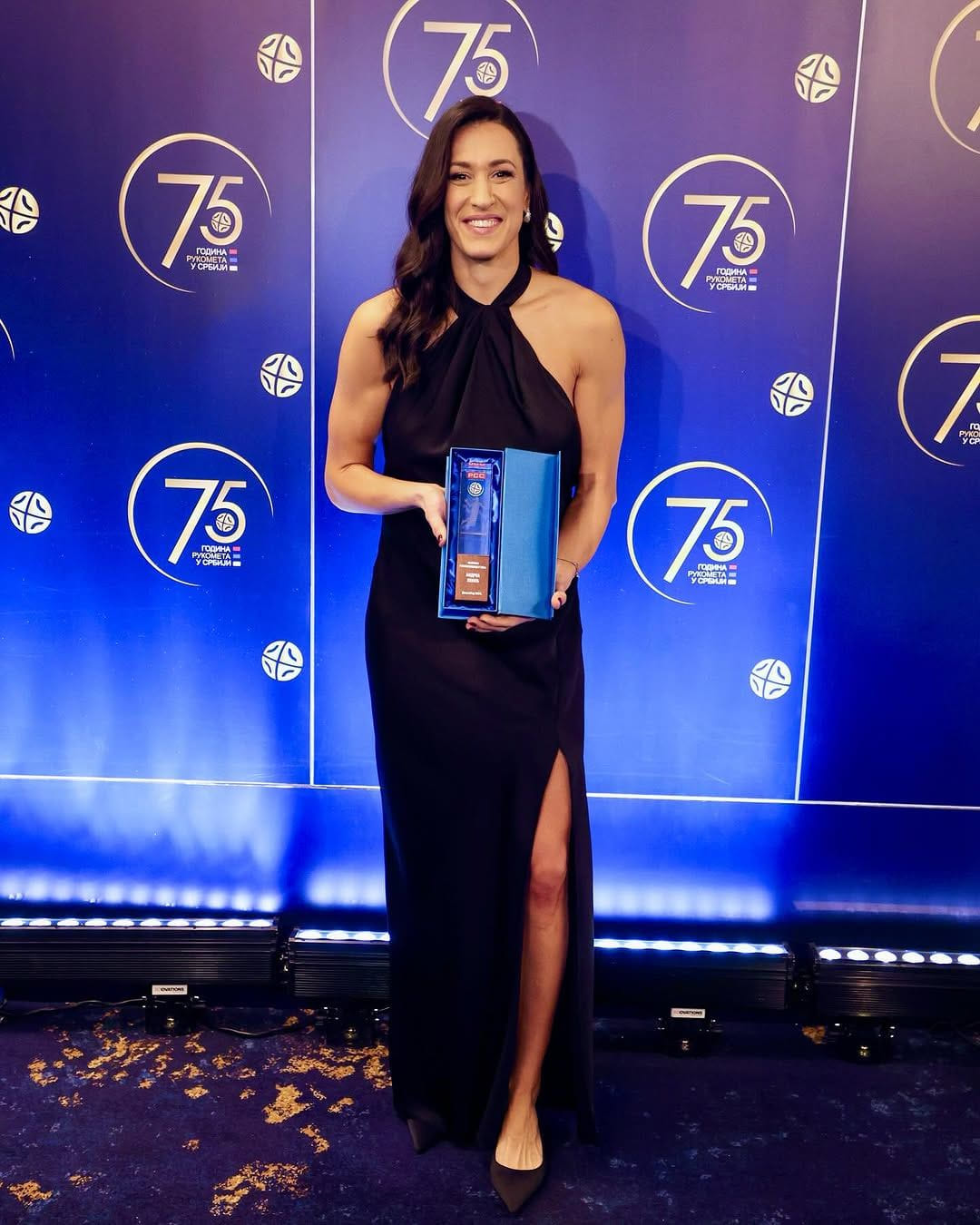
— A similar concept in Serbian volleyball succeeded, can this experience be repeated in handball?
— It was a true miracle in volleyball, it’s an example to follow. They’ve worked on their project for a long time — and nothing simply fell from the sky, the work of well-established system resulted in all these great successes.
I wish we had a serious club of the European level, not necessarily a participant of the Champions League, but a kind of incubator for our talents, who could be raised and progress at home and continue career in the strongest foreign teams. Another priority is education of coaches. Not so many our coaches work abroad, we need to think about it.
We are also lagging behind in physical training, it’s the element that can always be raised to a higher level. Handball is a hard sport, and we have to put more in physical training.
— Could the drop in results have been avoided if the whole group of players hadn’t stopped playing for the national team too early?
— The leaders of the federation planned to rejuvenate the national team urgently. Neither Russia does something similar with such potential and players’ fund, nor Norway which retains the best, regardless of their age. There’s no such a superpower which could allow itself a luxury to replace six players at their peak capabilities! But that’s exactly what Serbia decided. And in my opinion, it was a serious mistake. We want high results for four years, but we don’t even approach it, ranking 17th, 18th, 20th… Why not learn then from those who knows how to work, who has already built the system? But then another keyword comes up — awareness. Understanding where we are now, how to become better… The Serbian handball will stagnate if we consider again that we know everything better than anyone, while the results disprove us. Let’s follow an example of those who are better than us, like others looked up to us once. Those days are in the past, others are ahead of us, but we don’t learn from them.
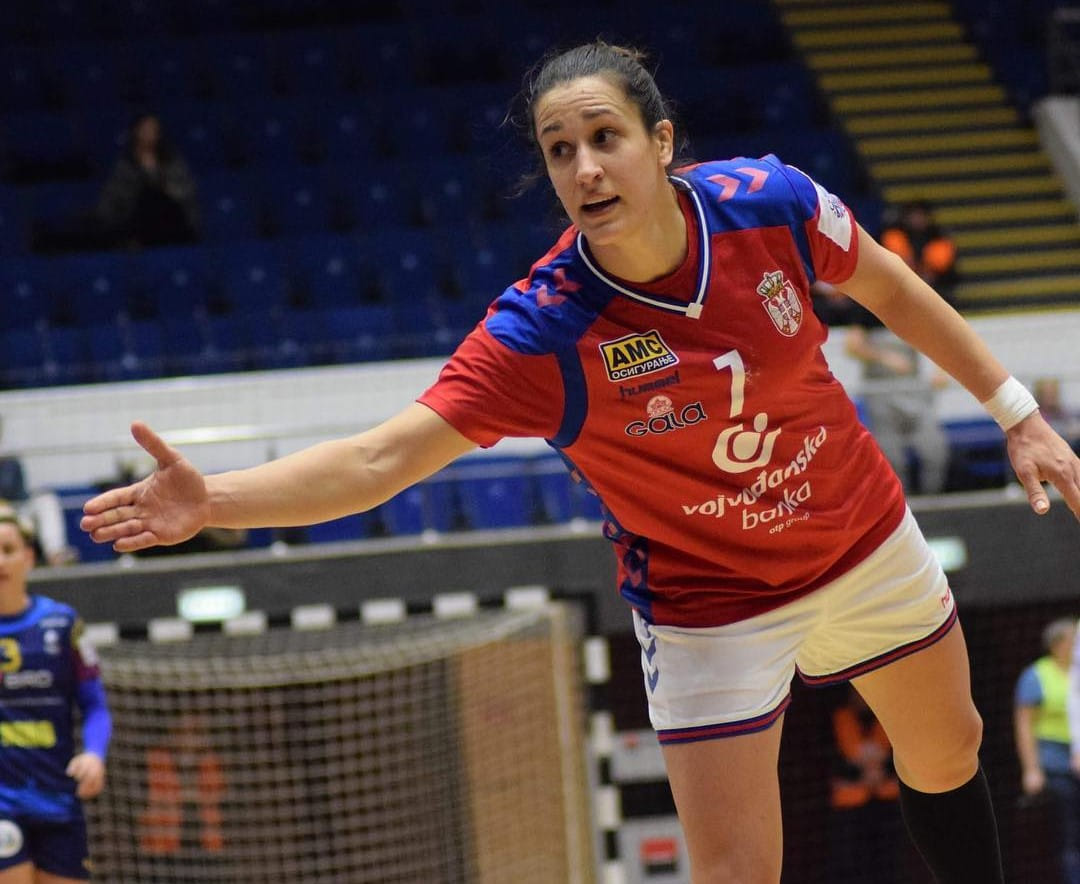
— A year ago you publicly commented only once on your "retiring" from the national team in 2021 in one Serbian podcast. I put the word in quotes because it was then head coach Uros Bregar who declared it, not you. You announced that you were not going to say goodbye to the national team, but just asked to give you a little more time to recover from a severe Achilles injury. Why didn’t you speak out publicly and refute these words immediately?
— Everyone understands that an athlete needs time after tearing Achilles and recovery to regain self-confidence. At that very moment when I was returning to the court, there was a campaign in Serbian mass media, promoting an idea of rejuvenation of the national team. At the same time a number of experienced players, who could still give the team a lot, one by one start announcing their retirement from the national team. Obviously, seeing all of this, you start to think that nothing makes sense. On the other hand, the new head coach has a contract, he wants to rejuvenate the team and it seemed to me that it was just useless to fight what cannot be changed.
Nobody called me from the federation after that coach’s announcement of my «retirement». Later I even found comments in the mass media that I won’t be able to return on the court after that Achilles injury. Don’t get me wrong, I’m not complaining, each athlete has been to something similar, but when I saw how many player left the national team in a short time, I didn’t find it necessary to explain something. Instead, I focused on my health and club career, having realized that some battles are lost in advance.
— Indeed, but didn’t you feel a sense of injustice? After all, a player of your level definitely deserved a more dignified separation with the national team!
— That statement of the former head coach "on my behalf" was very unpleasant. Since after everything I gave to Serbia I suppose that I deserved that no one else announced my leaving. Each player deserves to say goodbye to the national team when he feels that the moment has come.
I’m never afraid to say what the problem is, but at the same time I’m always ready to listen the other side’s arguments. And I was so hurt at that time, believe me, my strength was gone. After many sleepless nights and tears I simply closed the chapter and focused on conquering new heights.
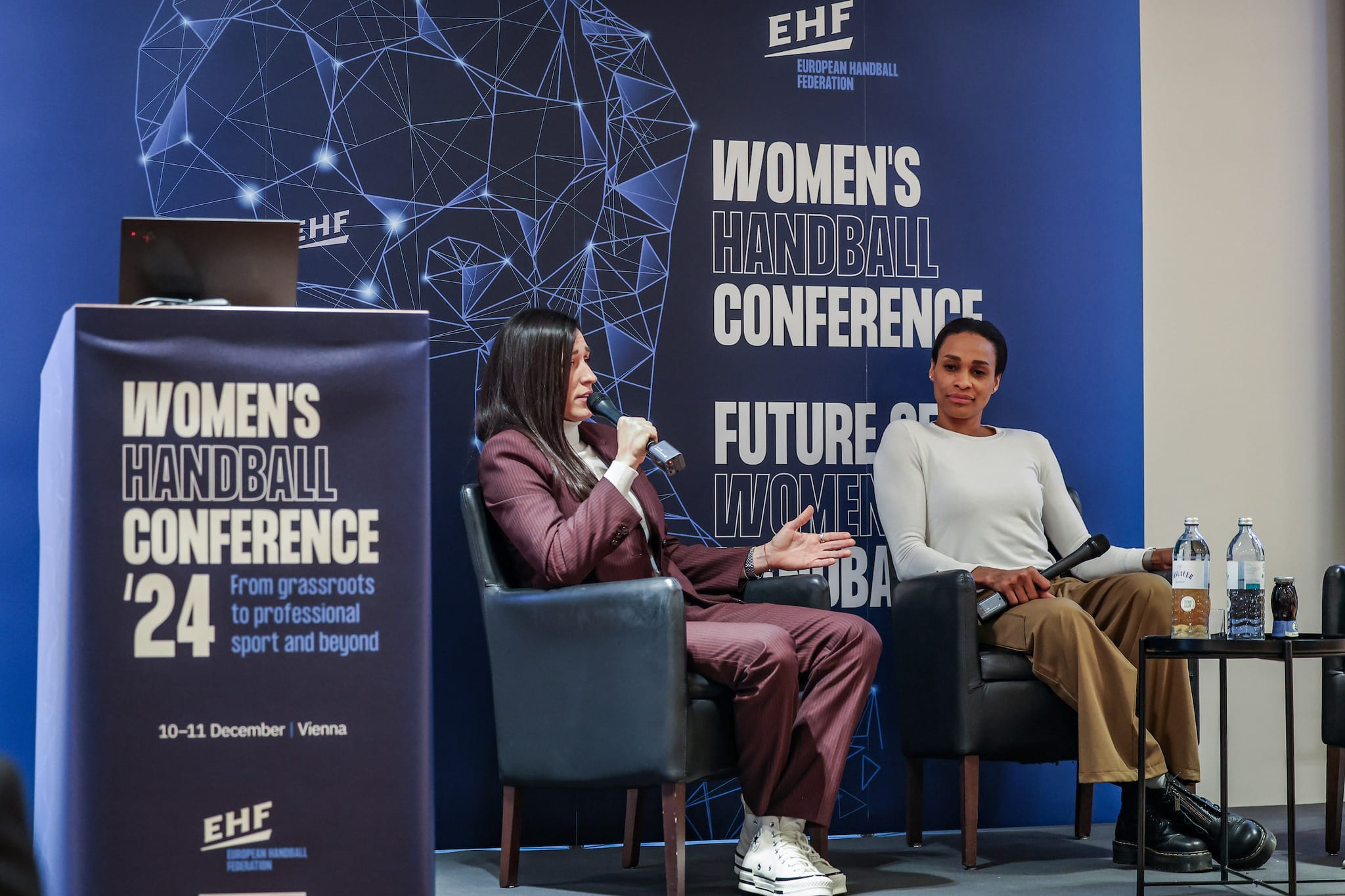
— It’s more satisfying to get back, isn’t it?
— I never dreamed of my return to the national team one day. And I’m infinitely happy now. When I was offered to return, I agreed immediately, because I want to help. Yes, I’m not some kind of savior to make a revolution at once after a four year break, but I still love boundlessly a T-shirt with the emblem of my country. Serbia has never had such poor results before and I honestly don’t understand how it is possible to perform worse.
The federation’s representatives brought me and Dragana t-shirts of the national team to negotiations in Budapest and we burst into tears immediately, it was so emotional. And I don’t pay attention to age — whether it is 22 or 36, it doesn’t really matter if you are able to play at the top level and help young girls with your experience and knowledge.
— You are one of the few athletes who uses the services of phychologist. And you even publicly stated that communication had helped you to cope with the consequences of a serious injury and also to learn to share the burden of responsibility on the court. What is the most valuable psychological advice for you?
— I’ve always burdened myself and in any game situation I considered myself to be the most responsible. I agree that being the centre back, captain and mastermind of attack implies responsibility for many things, but not for everyone in the team. Handball is a team sport, it’s not tennis!
It took me a long time to understand that this can’t go on. Sometimes I overdid it with self-criticism in the process of maturing as a player, I often didn’t consider good matches to be good. It allowed me to progress, but at the same time it limited me in the expression of joy, I couldn’t enjoy small victories on the court.
Once the psychologist told me: "Andrea, imagine that responsibility is actually a pie. You cut it into twelve pieces, took it to the workout and you are so greedy that you are carrying this pie and saying: "The pie is only mine!" And you don’t share with anyone. Andrea, and responsibility is shared!" I often recall these words. The pie is not only mine! If you step a little further away, at a distance, you notice that bad matches are not so bad, when you look from another point.
— How does it look like today: do you manage to distance yourself and look at things differently?
— I definitely managed to reduce the level of self-criticism, I allow myself to make mistakes. I suppose, to give yourself the right to make a mistake is one of the most important qualities of an athlete. Surprisingly, this act itself releases us from a mistake and encourages to show better play.
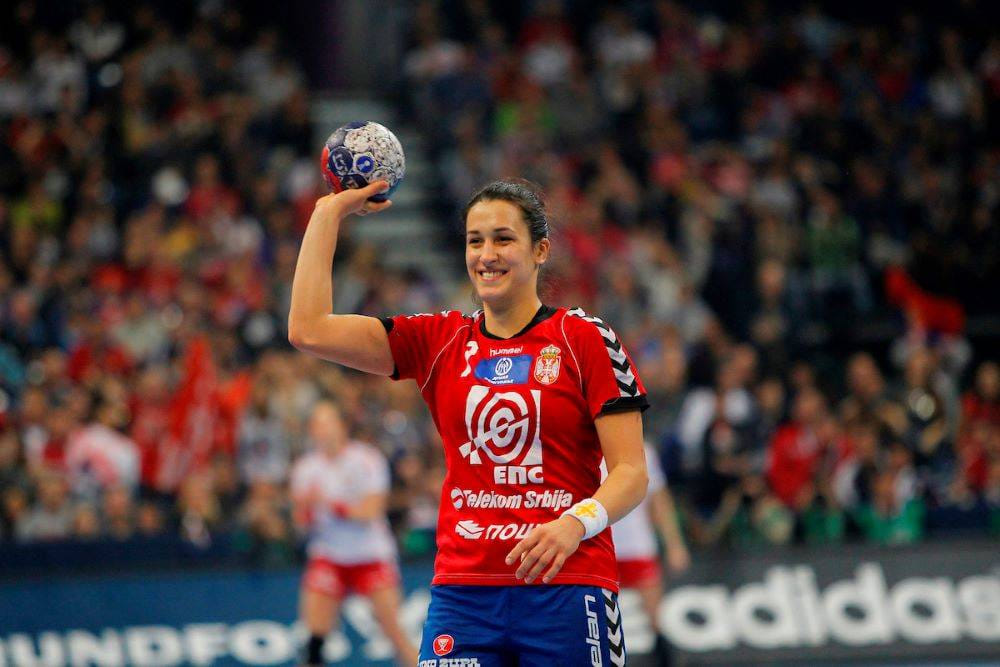
Let me explain. As my therapist says, "Tell yourself on the training: "I’ll make mistakes to the fullest!" The point is that our sympathetic and parasympathetic nervous systems function as opposites. And when you tell the first one: "I will make mistakes in everything today" — the second one fights and usually doesn’t make mistakes.
I used to overdo before. For example, when I played for Krim I came home after the match and cried. While we won and I performed quite well! And my mother told me: "So, when is it well? I don’t know what to do with you". My parents also played sports, but not at such a high professional level, such pressure is unfamiliar to them. And coaches, who are also under enormous pressure, notice the consequences of it for the players. They understand the necessity of change in approach, at least partially relieve such pressure from the wards to make the work on the site easier. Fortunately, a psychologist in sport is no longer a taboo.
— You once said that you don’t see yourself as a coach at the end of your career. But the work to promote handball among children, its popularization as the EHF ambassador is close to you. How far have you succeeded in this direction, are there any particular options what to do after you finish playing?
— Everyone should start with himself if we want handball to be better. The game gives us a lot and I want to give it back as much as I can. I am involved in a program called Respect Your Talent, it is one of the best led by the EHF in my view, it deals with the education of young players in various fields, not only on the 40-20m site. I like it. Whether we are talking about doping issue, public appearances of athletes in the mass media, their behavior, nutrition, care of body — the image of an athlete consists of all of the above. I am very happy to be the ambassador of such a program, many young players have already passed through it. Today we have handball players who participate in the Champions League and who say that involvement in the program was an invaluable experience for them. It is very inspiring because my generation didn’t have such opportunities, internet wasn’t so developed and we didn’t have so much information.
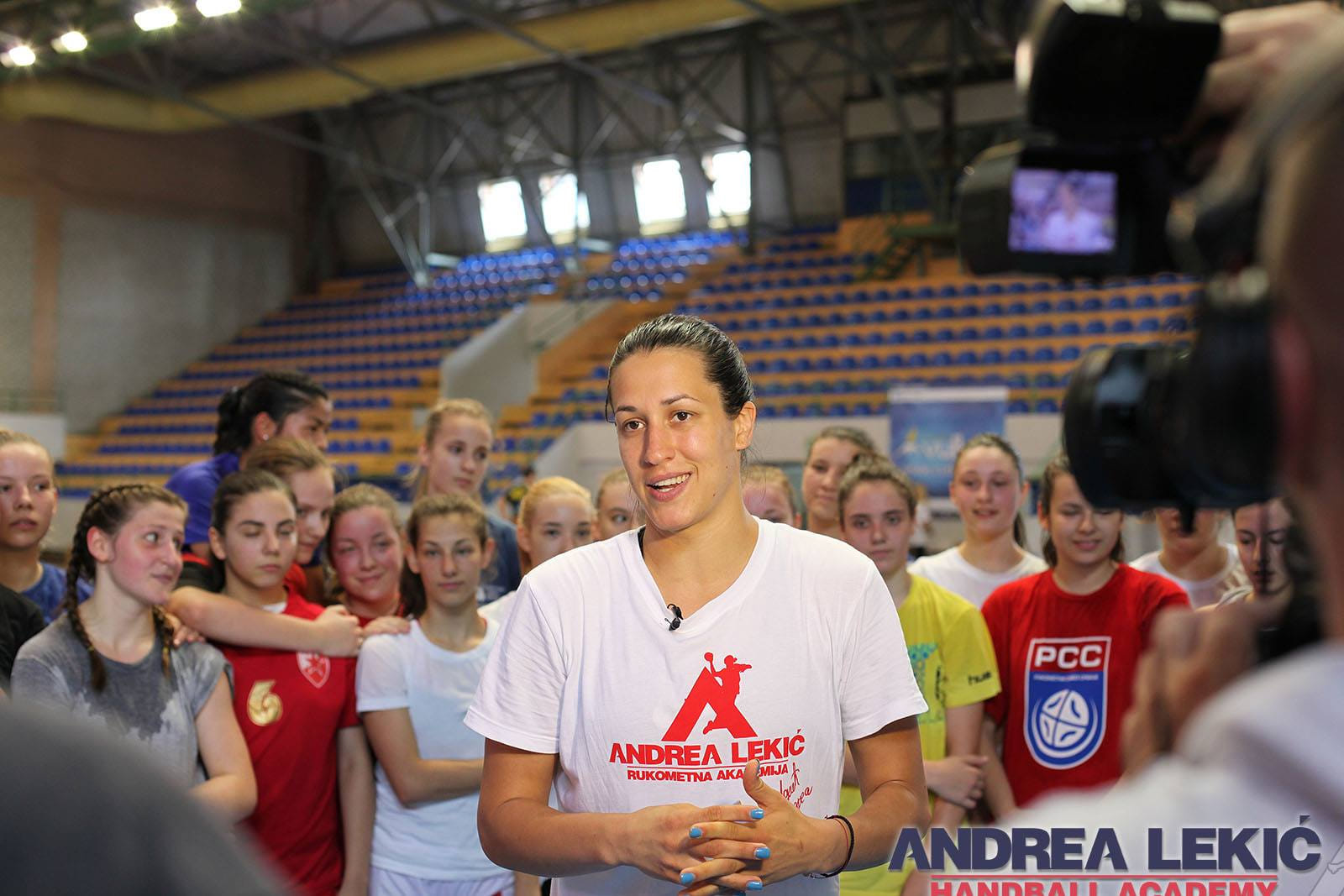
It’s a different time, there are many opportunities to impact children, who started playing sports professionally, in a positive way. The opportunity to help the largest possible number of young handball players, whom I communicate with before or after matches through some applications, is an inexhaustible source of my motivation. At the same time it’s a chance to learn something from them — the youth is incredibly inspiring! .

